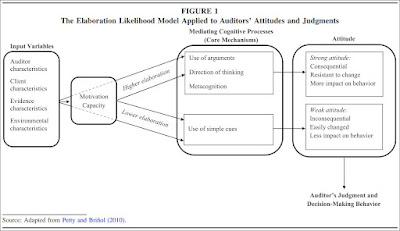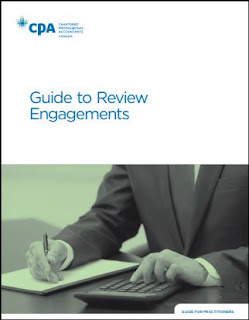According to the authors of a 2018 academic research article, using the Elaboration Likelihood Model (ELM) as a metatheoretical framework can help in understanding the collective findings within auditor judgment and decision-making (JDM) research. The goal was to demonstrate the utility of the ELM by interpreting the results of two samples of studies on client cooperation and auditors’ moods. The synthesis of client cooperation studies suggests cooperation on a current issue affects auditors’ judgments only when auditors lack motivation to think carefully about the task. In contrast, a history of client cooperation tends to bias even highly motivated auditors’ judgments. Furthermore, the synthesis of mood studies suggests motivational interventions are necessary, but not sufficient, to mitigate mood’s effects on judgments. The ELM interpretations offer theoretical explanations for seemingly unrelated predictions and findings that can inform future research and practice.
For more information, refer to the research article titled The
Elaboration Likelihood Model: A Meta-Theory for Synthesizing Auditor Judgment
and Decision-Making Research by Emily E. Griffith (University of
Wisconsin–Madison), Christine J. Nolder (Suffolk University) and Richard E.
Petty (The Ohio State University). The article was published by the American
Accounting Association in Auditing: A
Journal of Practice & Theory, Volume 37, Number 4, November 2018, pp.
169–186.



